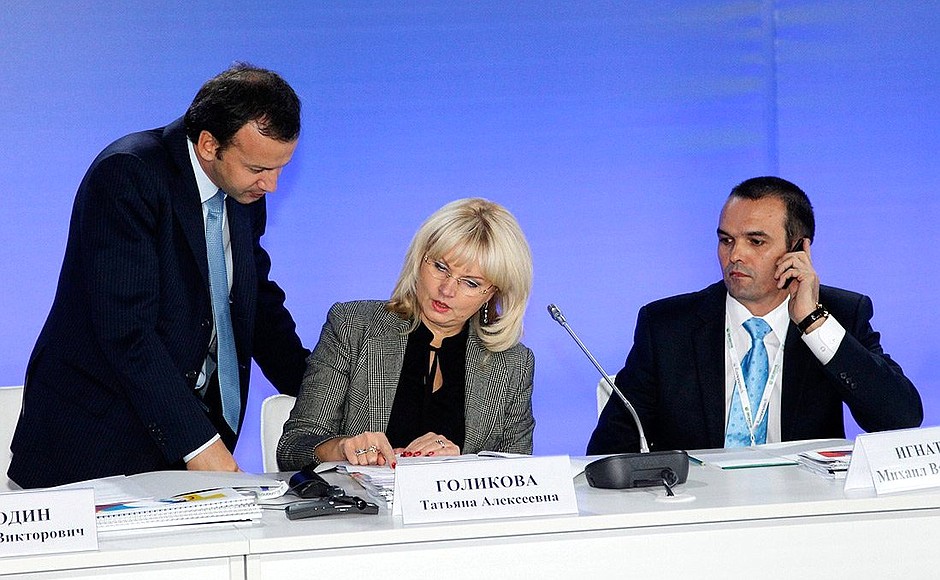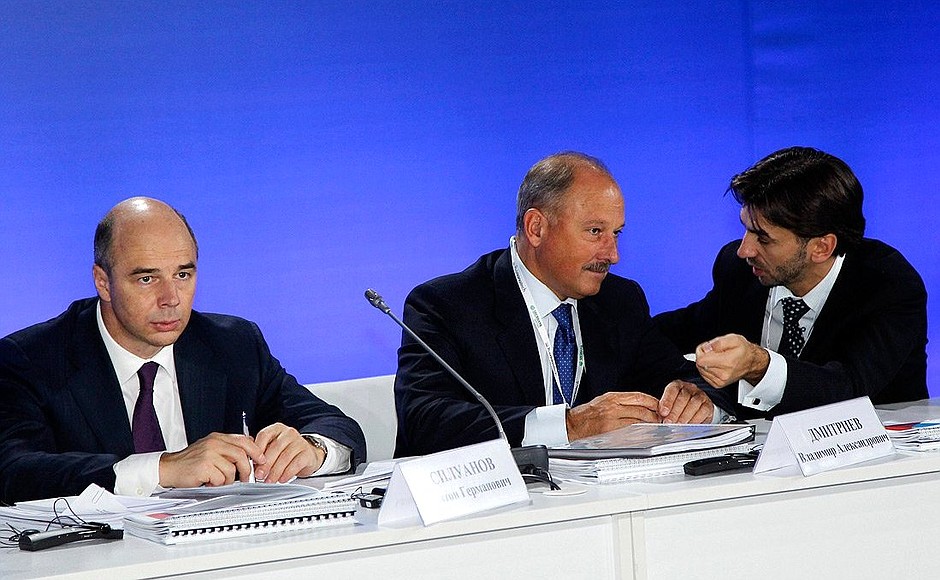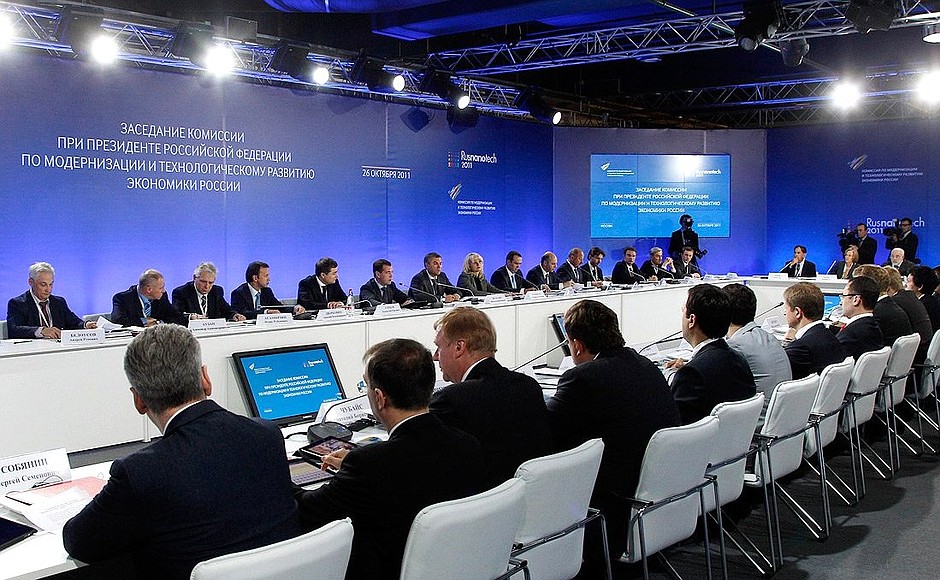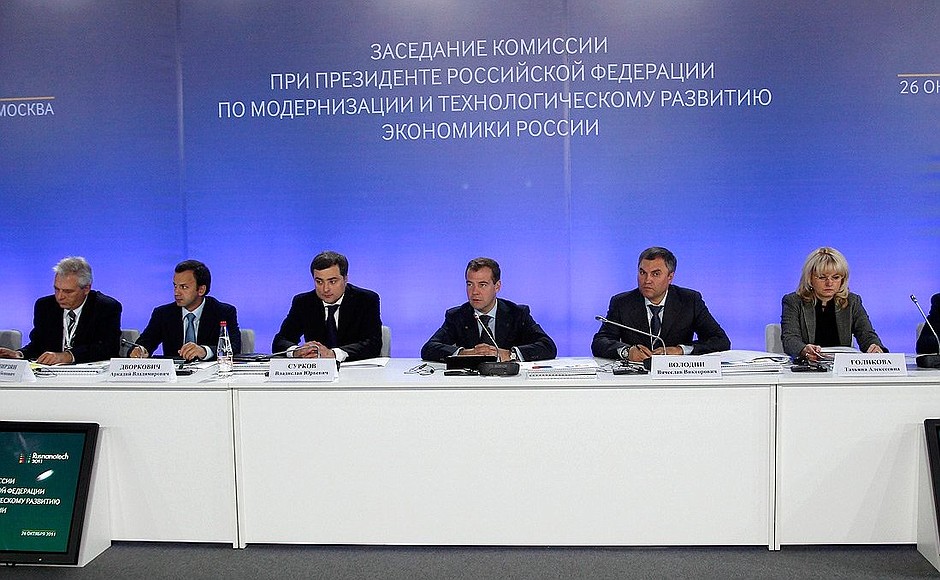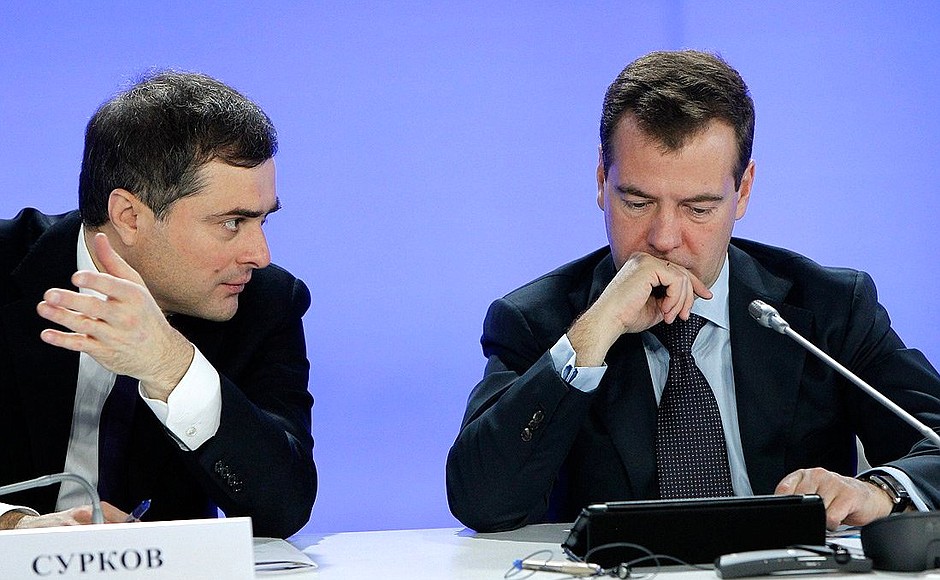The meeting oversaw the signing of an agreement between the Foundation for Development of the Center of Research and Commercializing of New Technologies, the Skolkovo Institute of Science and Technology, and Massachusetts Institute of Technology with the purpose of establishing a modern educational and research centre in Russia.
* * *
President of Russia Dmitry Medvedev: Colleagues, ladies and gentlemen,
Today’s session of our Commission is devoted to matters pertaining to forming demand for innovative projectsand products. Before this meeting, I participated in a forum, felt positive emotions, and learned about several new projects such as the Shop of the Future and Smart House. It’s very impressive, of course. I don’t know when all of this will be accessible, but if it happens, then that level of service will certainly correspond to the 21st century standards. It also changes our understanding of what we are used to and what our shops look like. I hope these technologies will soon be applied in our daily lives, because the goal of any change is to improve living standards and ensure more comfortable and interesting lives.
We have created so-called segmentsof the innovative lift, necessary for implementing specific scientific ideas, projects, and technologies. We have drafted a regulatory framework, and development institutions are in operation and get almost half a trillion rubles ($16 billion) of government allocations, which is very important. I won’t talk about the figures, since I mentioned them at the forum, but I would very much like the people handling those figures – those who are involved in development and in innovation – to discuss them, so nobody can claim that we scaled things down. All that is simply unfair; these are lies, and moreover, I am surprised to see things like this appear at all.
We have one issue that is an absolute priority. In September, we made the difficult decision on compulsory insurance contribution rates. On the one hand, they have gone down, but on the other hand, we had to imposecertain additional payments. Still, insurance payments will decrease next year for most companies, while for others, they will grow due to higher rates for relatively high salaries. I gave instructions to review this practice, to assess the possibility of using lower rates for high-tech and engineering companies. I know that the Economic Development Ministry reviewed the subject and corresponding suggestions were prepared, but as far as I understand, they did not become draft laws. This is bad since a different line of action had been agreed upon, which also applies to benefits for NGOs involved with charity and other socially valuable activities. I expect that these draft laws will be prepared very soon and presented for submission [to the parliament] by the end of November, so I am instructing the Cabinet to address the subjects and present corresponding resolutions.
We are spending significant funds and it is our right to expect this system to be efficient. Unfortunately, this kind of innovative liftdoes not always work fully; it simply gets stuck somewhere. The projects presented at the exhibition, which we will be discussing later during our meeting, are more of an exception to the rule than a regular outcome of the efforts made, so I would like for us to keep that in mind.
Today, I hope to hear ideas and suggestions on how to stimulate demand for innovations, and what mechanisms are necessary for their successful implementation and use.
Let’s begin our work, since we have another issue to address: the signing of the Agreement on Cooperation between the Skolkovo Fund, the Skolkovo Institute of Science and Technology, and Massachusetts Institute of Technology.
<…>
